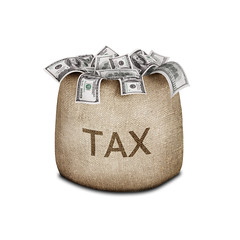I sometimes wonder:
does Carol write these columns herself, or does she have some flunky
on her staff do it? I am leaning toward the former opinion. For
evidence, here is the column's headline:
"Sense, cents, get it?"
Moan.
She couldn't be paying an actual
salary for someone to write a headline that lame,
could she? Well, maybe. But I have a feeling we're getting
direct insight into the Mind of Carol here.
|
Congressional Republicans and Democrats want to lower the debt, but they
have very different approaches. The Republicans' idea, the Ryan Budget,
would repeal the health care law, turn Medicare into a voucher program
and reduce benefits, slash Medicaid -- the program that more than 60
percent of nursing home residents need to pay for their beds -- cut
other domestic programs, and would be revenue-neutral. In other words,
it would not raise a penny of revenue to help pay down the debt; it
would rely just on deep cuts. Democrats offered a budget, the Van Hollen
Budget, which had a mixture of cuts and revenue. For Americans who want
to lower the debt but still invest in good government, the question has
to be, "Can we raise revenue to pay the bills without increasing taxes
on the middle class and small businesses?"
|
Interesting word choice: Carol talks about "debt" and never "deficit".
Does she know the difference? We will never "lower the debt" until
we eliminate the deficit altogether, and start running a surplus.
Nothing Carol suggests will even come close to that.
Clearly, though, her constant use of "revenue" throughout this column
is a dishonest
euphemism for "taxes".
It was only a few weeks ago, by the way, that Carol trashed
the Ryan Budget: "[S]ince there is no effort to even acknowledge the other
party or compromise on any issues what-so-ever, it has zero chance of
success."
But that was then, this is now, and Carol now
cheers for the "Van Hollen
Budget" which is, if anything, more partisan, less compromising,
and has even less chance for success. And that's fine with Carol.
|
|
The answer is, "Of course." There is plenty of revenue to be found, but
guards, otherwise known as lobbyists, are standing watch over the
revenue and our incredibly unfair tax code. America desperately needs
revenue to rebuild transportation and communication infrastructure and
create jobs, to provide health care to seniors and poor children, to
invest in medical and business research and technology, to educate our
young people, keep our country safe, and to pay down our debt, but we
should not borrow for all of this. We should raise revenue. So, looking
past both budgets, where can we find money?
|
In CarolLand, taxes are not raised; instead, "revenue" is "found".
That is, if you can get around the "guards" who are "standing watch"
over it.
What is that money doing in private hands anyway?
Nothing that Carol deems worthwhile. That money is what "America
desperately needs". The $5.4 Trillion in cash that
government currently extracts? Sorry, just ain't enough.
For Carol, it's never enough.
What's clear from her rhetoric:
There is not a single dollar in private hands that Carol does not
imagine she could spend more wisely and humanely. Oh, sure: she'll
probably let you keep some of yours. But that's not due
to any lofty principle. The only rule is: if she thinks government
"needs" it, and she can politically get away with it, she'll take it.
Carol deems the current tax system "incredibly unfair"; she never
spells out what she means by that, except that it doesn't generate
enough cash flow to satisfy her unlimited spending desires.
|
|
Even though most people don't hear about them, there are many
suggestions being made by many different groups. I am going to include
some here, whether I agree or disagree with the suggestions.
|
Translation: "I don't have enough political courage to advocate specific
positions
and take responsibility for them."
|
|
Some want to raise taxes on the wealthiest. The Congressional
Progressive Caucus Budget "asks the extraordinarily wealthy to pay a
sensible share by creating five additional tax brackets, the highest of
which is still lower than the top bracket in place during most of the
Reagan Administration." Their brackets would be 45 percent for $1-10
million, 46 percent for $10-20 million, 48 percent for $100 million-1
billion, and 49 percent for $1 billion and more.
|
I know Carol's just quoting someone else here, but note the "asks"
euphemism. The government does not "ask" for more taxes. It takes them,
under threat of force. Anyone who says government should "ask" for more
taxes is a dishonest and cowardly charlatan, and is demonstrating
contempt for your intelligence.
Also note the "sensible share" bit. That's an interesting way to
frame an arbitrary grab for more cash.
|
|
Many are taking aim at those corporations that have managed to escape
paying any federal income taxes. David Kocieniewski's article in the New
York Times, March 24, 2011, titled "G.E.'s Strategies Let It Avoid Taxes
Altogether," certainly caught the public's attention. He wrote that
General Electric had worldwide profits of $14.2 billion, $5.1 from U.S.
operations, and "Its American tax bill? None. In fact, G.E. claimed a
tax benefit of $3.2 billion." And G.E. is not alone. Kocieniewski points
out that while we have one of the highest corporate tax rates in the
world, "companies have been increasingly using a maze of shelters, tax
credits and subsidies to pay far less."
|
A debunking of the "GE pays no taxes" meme is here.
Carol, of course, has no idea what to do about the corporate income tax,
other than vaguely
"taking aim" at the corporations. (Gun-based metaphors are OK
to use when you're a Democrat.)
It's notable that even a lefty like Matthew
Yglesias thinks we should just get rid of the corporate income tax.
Whether the GE factoid is true or not, the corporate income
tax has become a dirty joke, an
inefficient snakepit of favors for the politically well-connected.
(Of course, being a lefty, Yglesias thinks we should more than make up
for it by increasing taxes—on, of course, "the rich"—elsewhere. But unlike Carol, he's honest
about it.)
|
|
He reports that the corporate contribution to our nation's revenue was
30 percent of the total 60 years ago, but only 6.6 percent in 2009.
Reform the tax code now. Some think we need to do a better job
collecting taxes that are already owed under the current code. James
Thompson wrote in an article, published on April 13 in USA Today, that,
"The government's failure to collect the $385 billion that is owed but
not paid the government each year -- called the "tax gap" -- translates
to a $3,300 surtax on each taxpaying household, according to the
Taxpayer Advocate Service." He argues that instead of cutting the IRS
and its 98,000 employees, 10,000 employees smaller than in 2010, we
should invest in catching cheaters to bring in revenue and make it
fairer for the rest of us.
|
If the government manages to snatch more money away from corporations,
fine. Of course, they'll have less to fritter away on jobs,
etc. But that's OK with Carol: the increased government revenue
can be spent on unemployment benefits! And as Nancy
Pelosi
knows, unemployment benefits create jobs!
Carol also has a naive faith
that throwing money at an organization—the IRS in this
case—is an effective way to improve its operations. Daniel J.
Mitchell debunks.
|
|
There are many other ideas to raise revenue without hitting the middle
class and small businesses. Stop allowing hedge-fund managers and
private equity fund managers to report their income differently, paying
a capital gains rate instead of an ordinary income rate. No more
deductions on yachts, gambling debts and private jets. A small financial
speculation tax on huge institutional (not individual) transactions on
Wall Street would raise billions over 10 years.
|
A mix of mostly dreadful ideas. Mostly chosen for their value as demagogic
political theatre, not for any rational fiscal purpose.
Also, since they conveniently target "someone else", Carol can pretend
that there would be no negative effects of sucking more money out of the
private financial sector, or punishing people who choose to invest their
money instead of spending it.
I have to admit that I have no idea what Carol is referring to about taking
a tax deduction for gambling debts. Is that a thing? I can't find
anything about it, for example, in this Forbes
article describing the tax implications of Carol's fellow
Democrat Maureen O'Connor's $1
billion gambling losses.
The financial "speculation" tax (usually referred to as a "financial
transaction tax") is a spectacularly bad idea. Here's an article
discussing a European proposal, but the argument applies to the US.
|
|
The point here is that we have a choice. Put options on the table and
have a vote on them, one by one. I listen to government officials,
service providers, educational institutions and small businesses each
day. They talk about the need for some revenue to invest in our people
and build our country. We can raise revenue to pay down the debt and
adequately run the country, and we don't need to ask the middle class to
pay more than their fair share. We just need to ask others who have been
holding back to pay theirs.
|
Note (once again) the "ask" euphemism, demonstrating Carol's lack of
respect for her readers and constituents.
Bottom line: Carol doesn't worry overmuch about the details as she gets more
money to play with, to spend on her worthy schemes.
But, perhaps surprisingly, I agree with her on one thing: If I were
advising Speaker Boehner, I would put every silly tax-raising scheme up
to a vote in the House, so that Carol would go on the record. No more
hiding behind the "I'm not going to tell you whether I agree or
disagree" tergiversations.
|
![[3.5 stars]](/ps/images/35stars.gif)
![[IMDb Link]](https://ia.media-imdb.com/images/G/01/imdb/plugins/rating/images/imdb_46x22.png)
![[Amazon Link]](/ps/asin_imgs/B00ARA4SLU.jpg)

![[4.5 stars]](/ps/images/45stars.gif)
![[Amazon Link]](/ps/asin_imgs/B005LAIIJY.jpg)
![[4.0 stars]](/ps/images/40stars.gif)
![[Amazon Link]](/ps/asin_imgs/B005LAIIHG.jpg)
![[2.5 stars]](/ps/images/25stars.gif)
![[Amazon Link]](/ps/asin_imgs/B009AMAL4Y.jpg)



![[1.0 stars]](/ps/images/10stars.gif)
![[Amazon Link]](/ps/asin_imgs/B008VPCL7G.jpg)

![[Amazon Link]](/ps/asin_imgs/B0087IT8FK.jpg)

![[Amazon Link]](/ps/asin_imgs/0307265722.jpg)
![[2.0 stars]](/ps/images/20stars.gif)
![[Amazon Link]](/ps/asin_imgs/B009AMANBA.jpg)


![[Amazon Link]](/ps/asin_imgs/B00A19Y79U.jpg)
![[Amazon Link]](/ps/asin_imgs/B008220C38.jpg)
![[The Blogger and His Dog]](/ps/images/me_with_barney.jpg)



